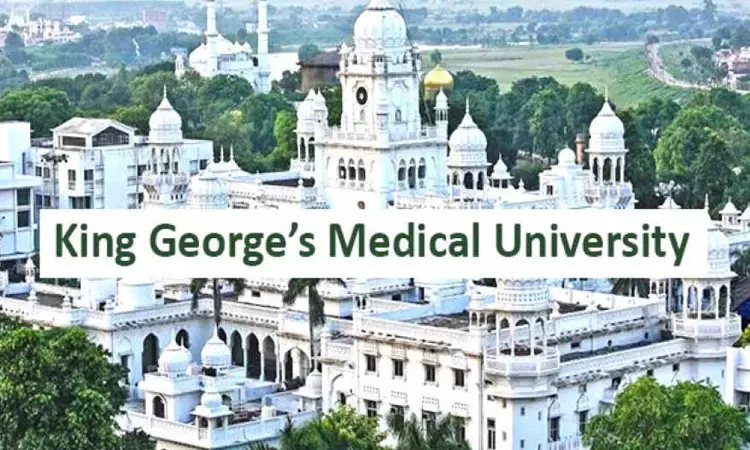- Home
- Medical news & Guidelines
- Anesthesiology
- Cardiology and CTVS
- Critical Care
- Dentistry
- Dermatology
- Diabetes and Endocrinology
- ENT
- Gastroenterology
- Medicine
- Nephrology
- Neurology
- Obstretics-Gynaecology
- Oncology
- Ophthalmology
- Orthopaedics
- Pediatrics-Neonatology
- Psychiatry
- Pulmonology
- Radiology
- Surgery
- Urology
- Laboratory Medicine
- Diet
- Nursing
- Paramedical
- Physiotherapy
- Health news
- Fact Check
- Bone Health Fact Check
- Brain Health Fact Check
- Cancer Related Fact Check
- Child Care Fact Check
- Dental and oral health fact check
- Diabetes and metabolic health fact check
- Diet and Nutrition Fact Check
- Eye and ENT Care Fact Check
- Fitness fact check
- Gut health fact check
- Heart health fact check
- Kidney health fact check
- Medical education fact check
- Men's health fact check
- Respiratory fact check
- Skin and hair care fact check
- Vaccine and Immunization fact check
- Women's health fact check
- AYUSH
- State News
- Andaman and Nicobar Islands
- Andhra Pradesh
- Arunachal Pradesh
- Assam
- Bihar
- Chandigarh
- Chattisgarh
- Dadra and Nagar Haveli
- Daman and Diu
- Delhi
- Goa
- Gujarat
- Haryana
- Himachal Pradesh
- Jammu & Kashmir
- Jharkhand
- Karnataka
- Kerala
- Ladakh
- Lakshadweep
- Madhya Pradesh
- Maharashtra
- Manipur
- Meghalaya
- Mizoram
- Nagaland
- Odisha
- Puducherry
- Punjab
- Rajasthan
- Sikkim
- Tamil Nadu
- Telangana
- Tripura
- Uttar Pradesh
- Uttrakhand
- West Bengal
- Medical Education
- Industry
KGMU first medical institute to adopt pathogen reduction technology for safe blood transfusion

The PRT is capable of identifying and eliminating viruses and bacteria in general. Usually, screening with the present technology is done for HIV, Hepatitis B and C, Malaria, Syphilis while blood has other viruses, including dengue and chikungunya, and harmful bacteria that are not screened before transfusion to a patient.
Lucknow: The King George's Medical University (KGMU) in Lucknow will soon introduce technology to make blood transfusion safer by eliminating harmful viruses and bacteria that escape in the present screening method.
Prof Tulika Chandra, head of the department of transfusion medicine at KGMU said, "We are the first in Asia to introduce pathogen reduction technology (PRT) being used in the US, the UK and Europe. This, apart from making blood safe for transfusion among patients, will also help reduce rejection rate among organ transplant patients."
Also Read:UP's first skin bank at KGMU to start in 3-4 months
The PRT is capable of identifying and eliminating viruses and bacteria in general. Usually, screening with the present technology is done for HIV, Hepatitis B and C, Malaria, Syphilis while blood has other viruses, including dengue and chikungunya, and harmful bacteria that are not screened before transfusion to a patient.
She explained, "Platelet and plasma, the two blood components, are a reservoir of virus and bacteria and this technology PRT is capable of eliminating infection from it. Also, it can eliminate WBC (white blood cells) from platelets, which are present in traces despite component separation. This will also contribute to reducing the rejection rate among transplant patients."
Platelet is stored at a temperature between 20 degrees Celsius and 24 degrees Celsius which is the ideal range for bacterial growth. "PRT has a success rate of 99 per cent," said Chandra.
Prof Chandra said that many patients need frequent blood transfusion, including those suffering from thalassaemia or other blood disorders. Such patients go for blood transfusion and the blood units are screened just for HIV, Hepatitis (B and C), malaria and syphilis but they may get infected with dengue or chikungunya or any other infection repeatedly.
"Those going for blood transfusion once or twice are at less risk but those who need blood transfusion frequently are at greater risk which can be reduced considerably by the PRT," she said.
She said once PRT is started, this technology will first be used for transplant patients. The second preference will be given to patients in need of frequent blood transfusion.
Also Read:UP: 10 KGMU Doctors among top 2 percent scientists in the world
Medical Dialogues Bureau consists of a team of passionate medical/scientific writers, led by doctors and healthcare researchers. Our team efforts to bring you updated and timely news about the important happenings of the medical and healthcare sector. Our editorial team can be reached at editorial@medicaldialogues.in.


